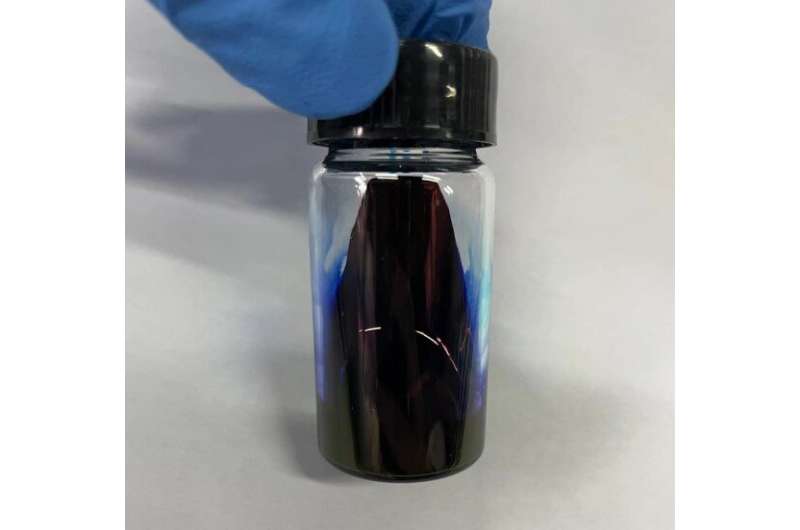Researchers develop stable kilowatt-scale aqueous organic flow batteries

Flow batteries (FBs) are promising in large-scale energy storage due to their high security and effectiveness. Among them, aqueous organic flow batteries (AOFBs) that utilize structural tunable and eco-friendly redox-active molecules are getting increased attention.
However, most organic molecules in AOFBs are prone to be oxidized especially by air, resulting in irreversible capacity decay and hindering their further applications.
Recently, a research group led by Prof. Li Xianfeng and Prof. Zhang Changkun from the Dalian Institute of Chemical Physics (DICP) of the Chinese Academy of Sciences (CAS) has developed stable kilowatt-scale AOFB stacks with high-performance organic redox-active molecules.
This study was published in Energy & Environmental Science on Dec. 1.
The researchers revealed the stabilization mechanism of one redox-active molecule, methylene blue (MB), and demonstrated that the stabilizations of MB, especially in both intermediate free radical state and reduced state, played a vital role in improving redox reversibility and air-stability.
They monitored MB by in-situ nuclear magnetic resonance (NMR) and found that free radicals were generated by comproportionation reactions between oxidized and reduced states in the electrolyte.
"We optimized electrolyte composition by tuning the interaction between different components in the electrolyte, thereby increasing the battery capacity," said Prof. Li.
What's more, the researchers demonstrated that oxidation resistance of MB radicals and reduced states played an important role in improving redox reversibility and air-stability by combining ex-situ electron paramagnetic resonance (EPR) with theoretical calculation.
To further verify the feasibility of MB molecule in AOFBs, they assembled ten units of 1000 cm2 AOFBs stacks. "We obtained the stacks with a discharge power of over 1 kW and a stable cycling capacity for 32 days," said Prof. Zhang. "Our study may provide an important reference for the AOFB practical application."
More information: Yonghui Zhang et al, Insight into Air-stable Methylene Blue Catholyte towards kW-scale Practical Aqueous Organic Flow Batteries, Energy & Environmental Science (2022). DOI: 10.1039/D2EE03051A


















